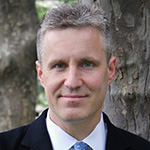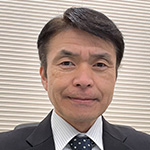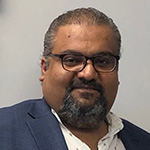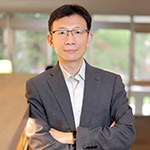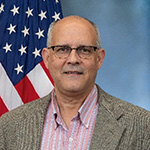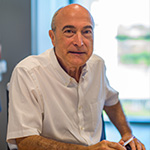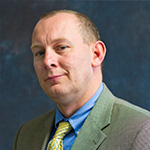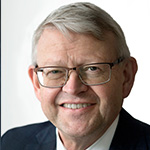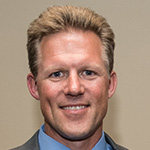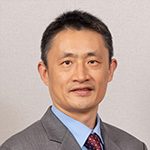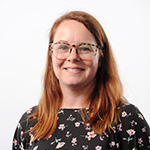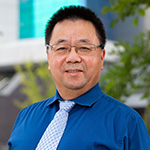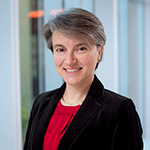Pennington, NJ – The Electrochemical Society (ECS) has named 15 members to the 2023 Class of ECS Fellows. The designation “Fellow of The Electrochemical Society” was established in 1989 for advanced individual technological contributions to the fields of electrochemistry and solid state science and technology, and for service to the Society. These members are recognized for scientific achievements, leadership, and active participation in the affairs of ECS. Each year, their peers choose up to 15 renowned scientists and engineers for this honor.
The 2023 ECS Fellows are (listed alphabetically): Martin Bazant, Massachusetts Institute of Technology; Jeffrey Blackburn, National Renewable Energy Laboratory (NREL); Teruhisa Horita, National Institute of Advanced Industrial Science and Technology; Ajit Khosla, Xidian University and Yamagata University; Po-Tsun Liu, National Yang Ming Chiao Tung University; Robert Mantz, Office of the Under Secretary of Defense for Research and Engineering; Nazario Martín, University Complutense and IMDEA-Nanoscience Institute; John Muldoon, Toyota Research Institute of North America; Mikael Östling, KTH, Royal Institute of Technology; Bryan Pivovar, National Renewable Energy Laboratory; Minhua Shao, Hong Kong University of Science and Technology; Peter Strasser, Technische Universität Berlin; Alice Suroviec, Berry College; Chunsheng Wang, University of Maryland; and Bilge Yildiz, Massachusetts Institute of Technology.
2023 Fellows of The Electrochemical Society
Martin Z. Bazant is the E. G. Roos (1944) Professor of Chemical Engineering and Mathematics at the Massachusetts Institute of Technology (MIT). He also serves as President of the International Electrokinetics Society, Director of Data-Driven Design of Rechargeable Batteries (D3BATT), Director of the Center for Battery Sustainability, Chief Scientific Advisor for Saint-Gobain Research North America, and Chief Scientist for Lithios, an MIT startup company he co-founded to develop advanced lithium extraction from brines using electrochemistry. His research focuses on transport phenomena, microfluidics, electrokinetics, electrochemical systems, and applied mathematics.
After completing a PhD in Physics at Harvard (1997), he joined the MIT faculty in Mathematics (1998) and then Chemical Engineering (2008), where he served as Executive Officer from 2016 to 2020. Prof. Bazant received awards including the International Society of Electrochemistry (ISE) Alexander Kuznetsov Prize in Theoretical Electrochemistry, American Institute of Chemical Engineers (AIChE) Andreas Acrivos Award for Professional Progress in Chemical Engineering, and MITx Prize for Teaching in MOOCs. He is a Fellow of the Royal Society of Chemistry, American Physical Society, and International Society of Electrochemistry.
Jeffrey Blackburn is a Senior Scientist, Distinguished Member of the Research Staff, and Group Manager of the Materials Physics Group at the National Renewable Energy Laboratory (NREL). He studies charge transfer, energy transfer, and excited state dynamics in low-dimensional materials for energy conversion and storage. His research interests include solar photoconversion, energy-efficient information processing, thermoelectric energy conversion, and (photo)catalytic processes.
Dr. Blackburn received his BS in Chemistry from Wake Forest University and PhD in Chemistry from the University of Colorado Boulder. For his dissertation, Dr. Blackburn worked primarily at NREL with Dr. Arthur Nozik, studying ultra-fast relaxation and charge-transfer processes occurring in semiconductor quantum dots (QDs) and QD interfaces. He then worked as a postdoctoral researcher with Dr. Michael Heben at NREL, focusing on the applications of low-dimensional carbon in hydrogen storage and photovoltaics.
Dr. Blackburn’s h-index is 55, with over 10,278 citations. He joined ECS in 2008 and has been active in the governance of the ECS Nanocarbons Division since 2014. He currently serves as division chair.
Teruhisa Horita is Director of the Research Institute for Energy Conservation (iECO), National Institute of Advanced Industrial Science and Technology (AIST), Tsukuba, Japan. Dr. Horita’s most prominent work is the visualization of ionic motions at the functional materials in SOFCs by using secondary ion mass spectrometry, which opened new insights into electrochemical analytical tools and contributed to improving the performance and durability of SOFCs.
In 1992, Dr. Horita joined the National Chemical Laboratory for Industry in Japan (formerly AIST) as a research scientist. In 2018-2019, he was the project leader of the SOFC durability improvements, NEDO Japanese project. Since 2020, he has led the NEDO project “Development of advanced evaluation and analysis technologies for the durability of SOFC stacks.” Through these national Japanese projects, his work has contributed to the commercializing SOFC small systems.
Dr. Horita has published over 210 original papers and received several patents. He was awarded the 2021 Commendation for Science and Technology by the Japanese Minister of Education, Culture, Sports, Science and Technology. Dr. Horita is Vice President of The SOFC Society of Japan and serves on the organizing committees of academic meetings, including the SOFC symposium series. He was Chairperson of the 17th International Symposium on Solid Oxide Fuel Cells in 2021 (SOFC-XVII) and SOFC-XVIII (2023). Dr. Horita currently serves as the Secretary/Treasurer of the ECS High-Temperature Energy, Materials, & Processes Division.
Ajit Khosla is Distinguished Professor in the School of Advanced Materials and Nanotechnology at Xidian University and Yamagata University. His research is interdisciplinary, bridging disciplines with a focus on fabrication, development, implementation of “artificial intelligence-powered chemical and biological sensor array systems” for healthcare and environmental monitoring that addresses real-world problems, thereby improving quality of life.
Prof. Khosla received his PhD from Simon Fraser University. There he was awarded the 2012 Dean of Graduate Studies Convocation Medal as one of SFU’s most outstanding graduate students for his work developing novel micro-patternable multifunctional nanocomposite materials for flexible nano- and micro-systems.
Prof. Khosla is a Fellow of the Royal Society of Chemistry (RSC) and author of over 180 publications in refereed journals, five books, and five US patents. He is the Founding Editor-in-Chief of ECS Sensors Plus, one of ECS’s first gold open access journals, and Technical Editor for the Sensors Topical interest area of the Journal of The Electrochemical Society and ECS Journal of Solid State Science and Technology. A champion of ECS’s diversity, equity, inclusion, and access mission, he led the JES Women in Electrochemistry focus issue. Prof. Khosla is the Chair and Founder of the ICTSGS and 4DMS+SoRo conference series.
Prof. Po-Tsun Liu is currently Chair Professor, Department of Photonics, and Director of the Display Research Center at National Yang Ming Chiao Tung University. He has garnered international acclaim for his noteworthy contributions to thin-film transistors (TFTs) and TFT-based functional devices/circuits, which are pivotal for advancing solid state electronics in emerging fields, including current drivers, photo-sensors, nonvolatile memory devices, and monolithic 3D-ICs technologies.
Prof. Liu received his PhD in Electronics Engineering from the National Chiao Tung University (now known as National Yang Ming Chiao Tung University). He is the author of over 400 journal papers and conference proceedings, with more than 7,000 citations, and has over 186 granted patents, many of which have been licensed to panel makers in Taiwan and used in product applications. The Taiwan International Invention Award Winners Association honored him with the International Inventor Prize and Lifetime Achievement Academic Award. Prof. Liu has been actively involved in the TFT symposium at ECS/PRiME meetings as co-organizer, section chair, and invited speaker. He served as faculty advisor of the ECS National Yang Ming Chiao Tung University Student Chapter when it was founded in 2020. Prof. Liu is an elected Fellow of IEEE, SID, and OPTICA.
Robert Mantz assumed the role of Principal Director for Renewable Energy Generation and Storage at the Office of the Under Secretary of Defense for Research and Engineering in June 2023. In this position, he spearheads the strategic direction for implementing renewable energy solutions across the Department of Defense (DoD) while coordinating scientific and technical development activities.
Most recently, Dr. Mantz served as the Principal Deputy for Extramural Competency Investments at the Army Research Office (DEVCOM/ARL) where he managed annual extramural basic research investments of over $325 million. In this role, he played a crucial part in enabling vital future Army technologies and capabilities through high-risk, high-payoff research opportunities. Prior to that, he held the position of Chief, Engineering Sciences Division at the Army Research Office, and Chief, Chemical Sciences Division, where he funded fundamental research for advanced future power sources and led the division’s efforts in advancing engineering sciences. Before that, he joined the Army Research Office in 2006 as the Electrochemistry Program Manager, where he funded research to develop advanced power sources for soldiers. Dr. Mantz’s career also included his appointment as a Program Manager in the Defense Advanced Research Projects Agency Strategic Technology Office (DARPA/STO). During his tenure, he oversaw the Biofuels and Deployable Energy Storage programs, driving advancements in these critical areas.
Dr. Mantz obtained a BS in Chemistry in 1989 at the U.S. Air Force Academy. He holds an MS for the synthesis and characterization of linear polymers containing polyhedral silsesquioxanes from California State University and a PhD in Electrochemistry characterizing room-temperature ionic liquids from North Carolina State University.
Throughout his 37-year career in federal service, both as a military officer and civilian professional, he has amassed extensive experience and expertise in various scientific and technological domains. Dr. Mantz’ wealth of knowledge and dedication continue to drive the development and transition of cutting-edge technology to ensure technical overmatch for our future warfighters.
Nazario Martín is Full Professor at the Universidad Complutense de Madrid and Vice Director of the IMDEA-Nanoscience Institute. He received honorary doctorate degrees from Universidad de La Habana and Universidad de Castilla-La Mancha. His research focuses on molecular and supramolecular chemistry of carbon nanostructures in the context of chirality, electron transfer, and biomedical and photovoltaic applications.
From 2015-2019, Prof. Martín was Editor-in-Chief of the Journal of Materials Chemistry (A, B, and C) of the Royal Society of Chemistry. He was President of the Confederation of Scientific Societies of Spain (2015-2019) and Spanish Royal Society of Chemistry (2006-2012). He held the European Research Council Advanced Chirallcarbon Grant from 2013-2019 and 2020 European Research Council Synergy Grant for the TomATTO project. Prof. Martín has published over 600 peer-reviewed papers and supervised 50 theses. He served as co-editor of seven scientific books and guest editor in 14 special issues of important scientific journals.
Prof. Martín is a member of the Royal Academy of Sciences of Spain and a corresponding member of the Royal Academy of Doctors of Spain. He is Fellow of the Royal Society of Chemistry, Academia Europaea, and Chemistry Europe. Important awards Prof. Martín received include the 2020 Spanish Ministry for Science and Innovation Enrique Moles Award—the most prestigious Spanish National Award in Chemistry; 2015 Miguel Catalán Research Award of the Community of Madrid; 2013 ECS Richard E. Smalley Research Award; 2013 Alexander von Humboldt Award; 2012 Gold Medal and Research Award of the Spanish Royal Society of Chemistry; and 2012 Rey Jaime I Award for Basic Research. He delivered the 2012 EuChems lecture. He is a member of international and national committees, including the Scientific-Technical Committee of the State Research Agency of Spain. A member at large of the ECS Nanocarbon Division, Prof. Martín published in Interface and was co-editor of the 2000 ECS book, Chemistry of Fullerenes and Carbon Nanotubes.
John Muldoon is Senior Principal Scientist at the Toyota Research Institute of North America (TRINA). Dr. Muldoon has consistently contributed to Toyota’s sustainable mobility platforms, studying materials for fuel cells, batteries, and carbon dioxide capture and conversion. His outstanding research leadership has greatly contributed to the company’s beyond lithium ion battery research programs, shaping global research trends on multivalent ion, lithium sulfur, and solid state lithium metal batteries.
Dr. Muldoon received a BSc (Hons) in Chemistry from Queens University Belfast in 1997. In 2002, he completed his PhD at the University of Notre Dame under the direction of Prof. Seth Brown, specializing in organometallic chemistry. He worked as a research associate at Scripps Research under Prof. Barry Sharpless (2001 and 2022 Nobel laureate in Chemistry) and Prof. Valery Fokin, establishing early applications of click chemistry.
Dr. Muldoon has received over 6000 citations and holds over 35 patents. He is an active member of ECS, the Royal Society of Chemistry (RSC), American Chemical Society, and Materials Research Society. As a member of the ECS Battery Division, he was instrumental in establishing symposia on beyond-Li-ion battery research. To advocate for the development of younger scientists, he cultivated the relationship between ECS and Toyota, which resulted in the establishment of the ECS Toyota Young Investigator Fellowship in 2016. Dr. Muldoon is a Fellow of the Royal Society of Chemistry and recipient of the 2023 ECS Battery Division Technology Award.
Mikael Östling is Professor of Solid State Electronics at the Kungliga Tekniska högskolan (KTH). His research interests are nanoscaled Si and Ge device technologies, emerging 2D materials, and s device technology for wide bandgap semiconductors for high- power/high-temperature applications.
Prof. Östling received his MSc and the PhD degrees from Uppsala universitet. From 2004-2012, he served as KTH’s Dean of the School of Information and Communication Technology, then Deputy President from 2017-2022. Prof. Östling was a senior visiting Fulbright Scholar at Stanford University and Visiting Professor at the University of Florida. In 2005, he co-founded the company TranSiC, which Fairchild Semiconductor acquired in 2011. He was awarded the first European Research Council Grant for Advanced Investigators. He supervised 48 PhD theses and co-authored over 600 scientific papers published in international journals and conferences.
An active member of ECS since 1984, Prof. Östling has published frequently in ECS journals and given invited presentations at ECS spring and fall meetings. He helped organize and has been actively involved in the biannual ECS symposium International SiGe, Ge, & Related Compounds: Materials, Processing, and Devices since 2006, as well as the editorial process of the corresponding ECS Transactions. An IEEE Fellow, Prof. Östling was an editor of IEEE Electron Device Letters from 2005-2014, appointed Vice President of the Electron Devices Society from 2014-2015, and Editor in Chief of the IEEE Journal of the Electron Devices Society from 2016-2019.
Bryan Pivovar is Senior Research Fellow and Electrochemical Engineering and Materials Chemistry Group Manager in the Chemistry and Nanosciences Center at NERL. He oversees NREL’s electrolysis and fuel cell and materials R&D spanning PEM, alkaline membrane, and liquid alkaline technologies. He has been a pioneer in areas of fuel cell and electrolyzer development, taking on leadership roles and organizing workshops in the areas of subfreezing effects, alkaline membrane fuel cells (2006, 2011, 2016, and 2019), renewable hydrogen at the gigaton scale (2019), Advanced Materials for PEM Electrolysis (2022), and Advanced Liquid Alkaline Electrolysis (2022). Dr. Pivovar is Director of the United States Department of Energy (DOE)-funded H2NEW (Hydrogen from Next-generation Electrolyzers of Water) Consortium, which focuses on addressing components, materials integration, and manufacturing R&D to enable manufacturable electrolyzers that meet required cost, durability, and performance targets, simultaneously, to enable $1/kg hydrogen by 2031.
Before joining NREL, Dr. Pivovar received his PhD in Chemical Engineering from the University of Minnesota and led fuel cell R&D at Los Alamos National Laboratory. He was instrumental in leading the US National Lab activities that evolved into the H2@Scale vision championed by the US DOE. The co-author of over 150 papers with over 15,000 citations in the general area of fuel cells and electrolysis, he received the 2012 ECS Charles W. Tobias Young Investigator Award and the 2021 ECS Energy Technology Division Research Award.
Minhua Shao is Cheong Ying Chan Professor of Energy Engineering and Environment, Chaired Professor in the Department of Chemical and Biological Engineering at the Hong Kong University of Science and Technology (HKUST). He is also Director of the HKUST Energy Institute.
After completing his BS (1999) and MS (2002) in Chemistry at Xiamen University, Prof. Shao received a PhD in Materials Science and Engineering (2006) from the State University of New York at Stony Brook under the supervision of Dr. Radoslav Adzic. Dr. Shao joined UTC Power in 2007, leading the development of advanced electrocatalysts for fuel cells, and was promoted to UTC Technical Fellow in 2012. He worked at the Ford Motor Company in 2013, researching lithium ion batteries until he joined HKUST in 2014.
An Associate Editor of the Journal of The Electrochemical Society, Dr. Shao has published over 240 peer-reviewed articles, edited one book, and filed over 30 patent applications (19 issued). He received awards, including the 2022 International Outstanding Young Chemical Engineer Award and the 2014 ECS Energy Technology Division Supramaniam Srinivasan Young Investigator Award. He is a founding member of the Hong Kong Young Academy of Science.
Peter Strasser is Chaired Professor of Electrochemistry and Electrocatalysis in the Chemical Engineering Division of the Technische Universität Berlin. His interests range from electrocatalytic oscillations to high throughput catalyst discovery to fundamental understanding of electrified catalytic interfaces for clean energy technologies.
Prof. Strasser studied chemistry at Universität Tübingen, Stanford University, and Università degli Studi di Padova, and received his PhD in Physical Electrochemistry under Gerhard Ertl at the Fritz-Haber-Institut Max-Planck-Institut. He worked at Symyx Technologies as a Postdoctoral Associate and Senior Staff Scientist, then served as Assistant Professor in the Department of Chemical and Biomolecular Engineering at the University of Houston.
Recognition of Prof. Strasser’s work includes the 2022 fcell Award, 2021 European Fuel Cell Forum Christian Friedrich Schönbein Gold Medal of Honour, 2021 Royal Society of Chemistry Faraday Medal, the 2020 ISE Brian Conway Prize for Physical Electrochemistry, 2018 International Association for Hydrogen Energy Sir William Grove Award, 2016 Deutsche Gesellschaft für Katalyse Otto-Roelen Medal, and 1999 Max-Planck-Gesellschaft Otto–Hahn-Medal. He is a Fellow of ISE. Prof. Strasser and his team have authored more than 350 journal publications and edited the book High-Throughput Screening in Chemical Catalysis. A named inventor on 19 issued U.S. and European patents, he has mentored spin-off companies which commercialized technology from his labs, including DexLeChem and Liquid Loop. Prof. Strasser has co-organized the PEFC&E Fuel Cell and Electrolyzer symposia for over a decade at ECS fall meetings. He happily drives a hydrogen fuel cell vehicle that he would not trade for a battery vehicle.
Alice Suroviec is the Dean of Mathematical and Natural Sciences and Professor of Bioanalytical Chemistry at Berry College. Her research focuses on using modified surfaces to increase the detection limits of biologically interesting analytes. She has worked on self-assembled monolayers on gold, enzymatically modified biosensors, as well as electrochemistry education.
Dr. Suroviec received her BS in Chemistry from Allegheny College in 2000 and her PhD in Chemistry from Virginia Tech under Dr. Mark R. Anderson in 2005. She taught at Concordia College from 2005-2007 while working in Dr. Vicki Gelling’s North Dakota State University’s Department of Coatings and Polymeric Materials lab. In 2007, she began work at Berry College in the Department of Chemistry and Biochemistry, where she was promoted to Associate Professor with tenure in 2013 and Professor in 2019. Prof. Suroviec has directed over 30 undergraduates in electrochemistry research in the lab.
Prof. Suroviec has served as the Associate Editor for the Journal of The Electrochemical Society for the Physical and Analytical topical interest area since 2016. She chaired the ECS Physical and Analytical Division (2017-2019), was a member of the Individual Membership Committee and Interdisciplinary Science and Technology Subcommittee, and currently chairs the Education Committee. Prof. Suroviec has led or co-organized more than 20 symposia with special emphasis on the Education in Electrochemistry Symposium and the Z01 Student Poster Session. She is a contributing editor for ECS Interface.
Chunsheng Wang is the Robert Franklin and Frances Riggs Wright Distinguished Chair Professor in the Department of Chemical and Biomolecular Engineering, University of Maryland (UMD) College Park. He is also a co-founder and UMD Director of The Center for Research in Extreme Batteries. His research focuses on electrode and electrolyte materials for advanced batteries. He developed water-in-salt electrolytes, extending the aqueous electrolyte stability window to 3.0V, and a transition metal-free LiBr-LiCl-Graphite cathode which has a high energy density and low cost.
Prof. Wang received his PhD from Zhejiang University in 1995. He received the 2021 ECS Battery Division Research Award, 2021 and 2015 UMD Invention of the Year Awards, and 2004 NASA Technology Brief Patent Application and Software Release Award. Clarivate has listed Dr. Wang as a Highly Cited Researcher every year since 2018. He has published over 340 papers in peer-reviewed journals, and his research has been cited more than 56,000 times with an h-index of 123. His patents have been licensed by companies for commercialization. Prof. Wang is an Associate Editor of ACS Applied Energy Materials.
Bilge Yildiz is the Breene M. Kerr (1951) Professor at Massachusetts Institute of Technology (MIT), Departments of Nuclear Science and Engineering and Materials Science and Engineering, and she leads the Laboratory for Electrochemical Interfaces. Prof. Yildiz’s research focuses on laying the scientific groundwork to enable next-generation electrochemical devices. The scientific insights derived from her research guide the design of novel materials and interfaces for efficient and durable solid oxide fuel and electrolysis cells, brain-inspired computing, and solid state batteries. Prof. Yildiz’s laboratory has significantly contributed to advancing the molecular-level understanding of oxygen reduction, ion diffusion, charge transfer, and electrochemical control of physical properties in mixed conducting oxides.
Prof. Yildiz earned her PhD in Nuclear Science and Engineering at MIT (2003) and her BSc at Hacettepe University (1999). Before returning to MIT as a faculty member in 2007, she worked as a Postdoctoral Researcher at MIT and Research Scientist at Argonne National Laboratory. Her research and teaching efforts have been recognized by the 2022 Rahmi M. Koç Medal of Science, 2018 Ross Coffin Purdy Award, 2012 ECS Charles W. Tobias Young Investigator Award, 2012 Somiya Award for International Collaboration, 2011-2016 NSF CAREER Awards, 2008 ANS Faculty PAI Outstanding Teaching Award, and 2006 Argonne National Laboratory Pacesetter Award. She was elected to the Austrian Academy of Science in 2023 and named Fellow of the American Physical Society in 2021.
The Electrochemical Society
The nonprofit professional Electrochemical Society has led the world in electrochemistry and solid state science and technology and allied subjects since 1902. We advance scientific theory and practice through publications, meetings, continuing education, and collaboration. Our robust global membership develops solutions to the planet’s major challenges. Scientists, engineers, and industry leaders share research at ECS biannual, co-hosted, and sponsored meetings. The ECS Digital Library on IOPscience hosts abstracts and highly peer-reviewed articles from publications, including the Journal of The Electrochemical Society (the oldest journal in its field), ECS Journal of Solid State Science and Technology, and new open access journals ECS Sensors Plus and ECS Advances.
Media Contact
The Electrochemical Society
Shannon Reed
Director of Community Relations
609.737.1902, Ext. 107
Shannon.Reed@electrochem.org

